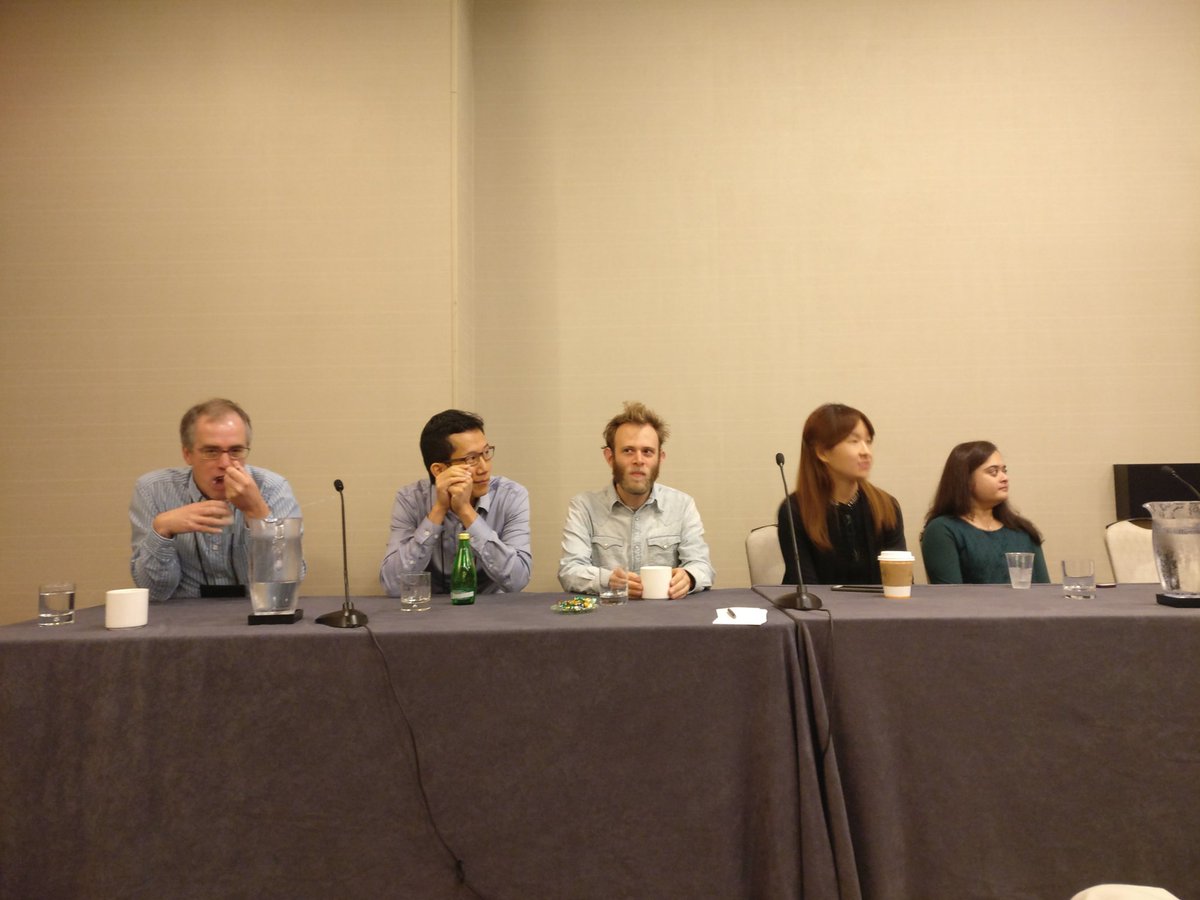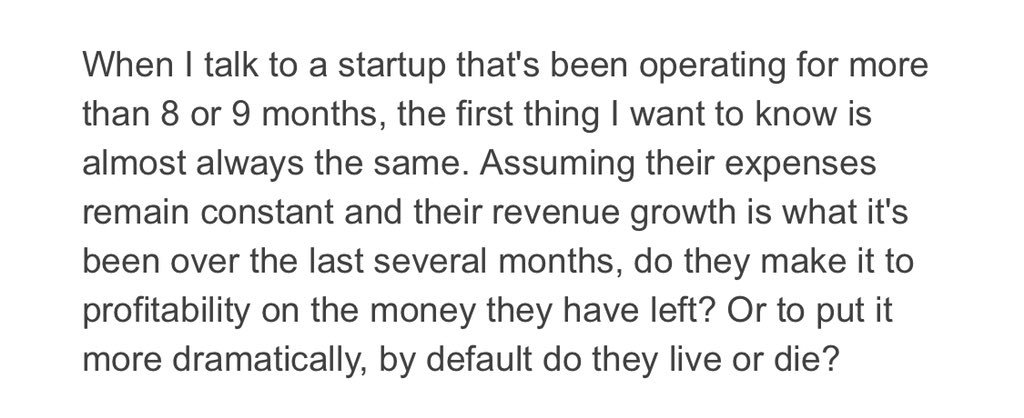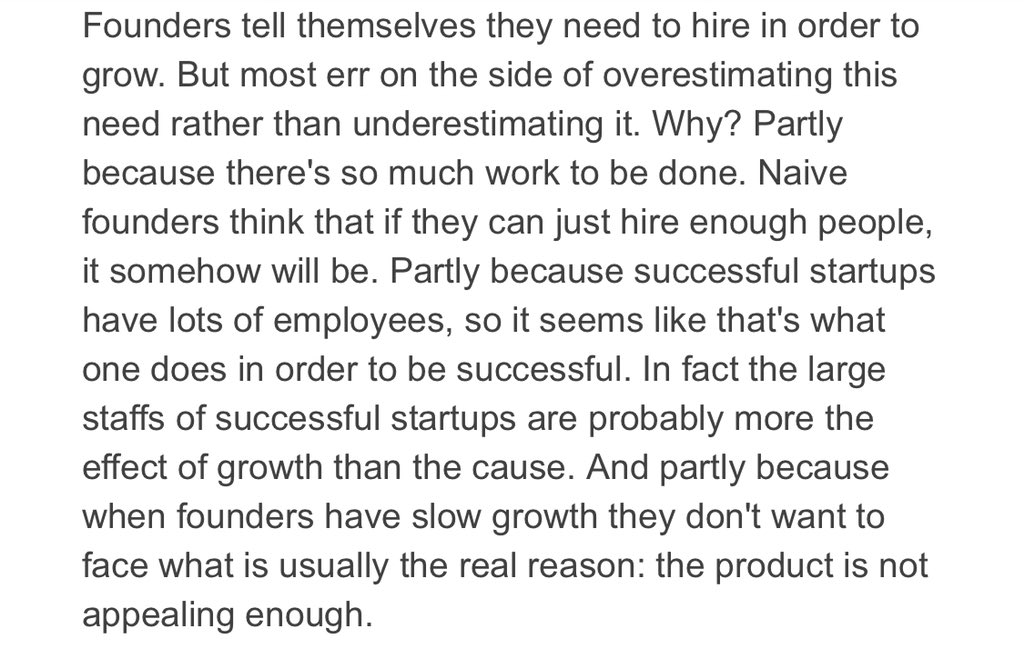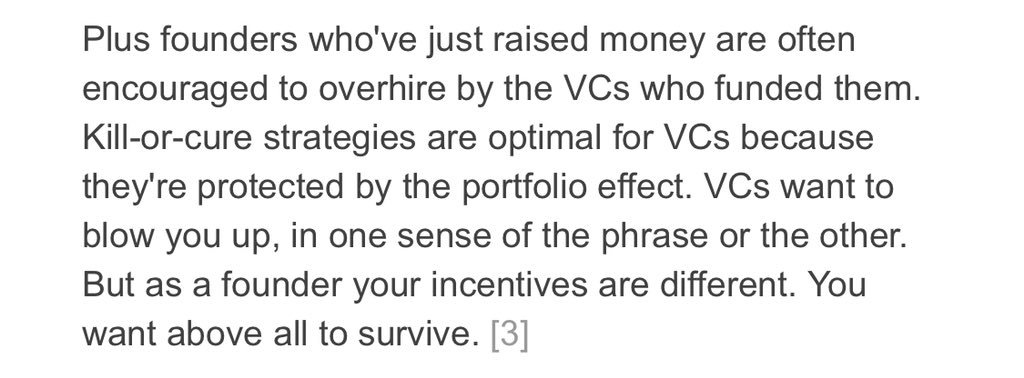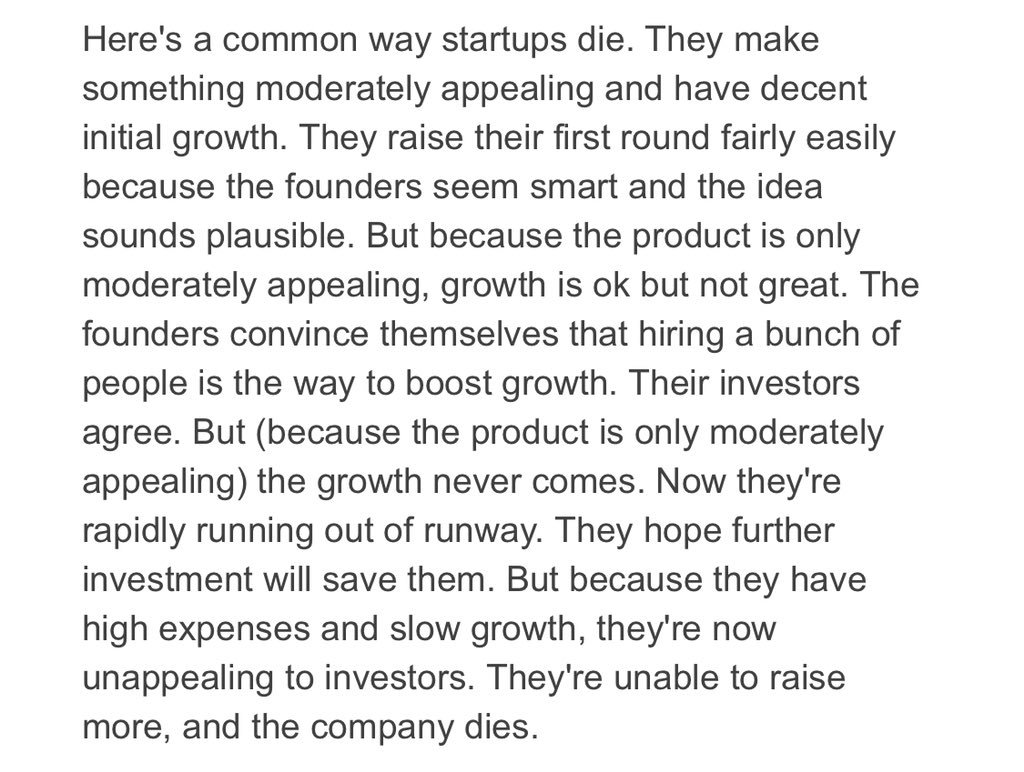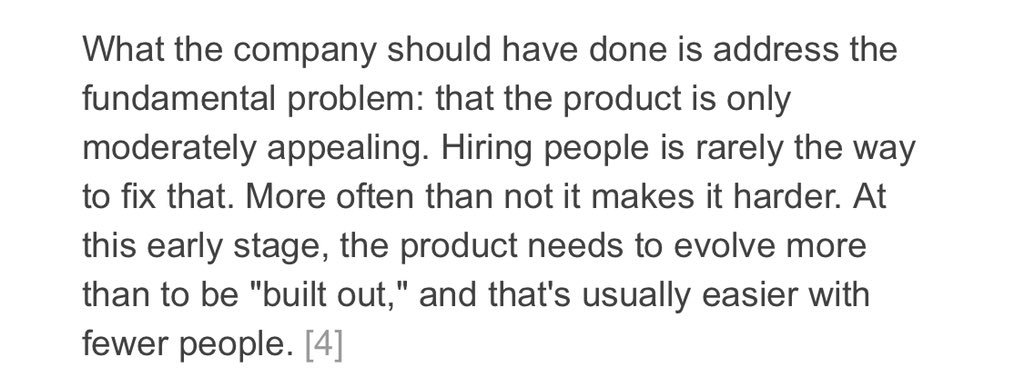Some quick thoughts on what powers that type of entrepreneur:
1/12
All entrepreneurs claim to have "vision." It's easy to wax poetic about how tech will change the world in the coming years. Rare is the ability to pair that perspective with views on how to make the cash register ring in the next 30 days. 2/12
These companies are usually absurdly early entrants into their markets. The kind of founder who tries to solve mobile ordering two years before the iPhone. The SaaS merchant in an on-prem world. They often have more faith than sense. 3/12
Being early means not having the luxury of easy capital. It usually means an endless stream of tough pilot projects & test deployments. Grabbing revenue wherever it can be had. It's hard, often demoralizing, but necessary. 4/12
VC-backed startups often have a laissez faire mode of management, but these founders believe in it and invest in it. They’re not micromanagers, but they do try instrument the business from its earliest days. Their survival depends on it.
5/12
These founders lose key hires to better-funded, higher-profile startups. Competitors raise more money and grow faster (until their faulty models fail). Family asks these entrepreneurs when they’re going to get a real job?
It can be painful.
For years. 6/12
I've been involved with a company in this mold for 14 years. TBH, I nearly wrote it off multiple times in the first six years. But whenever I got close, the founder reignited my excitement and did the same for the team. A true super power. 7/12
The difference between a $100M exit and a $1B exit is often just a three-week vacation. Some founders get burnt out after a decade of struggle and take the 1st credible offer for their startup. Just as their growth is about to go exponential. 8/12
All startups are risky. But there's a big difference between spending two years at a startup that fails and 10+. These founders define "all-in" and leave little room for "pivoting" their personal brands. 9/12







